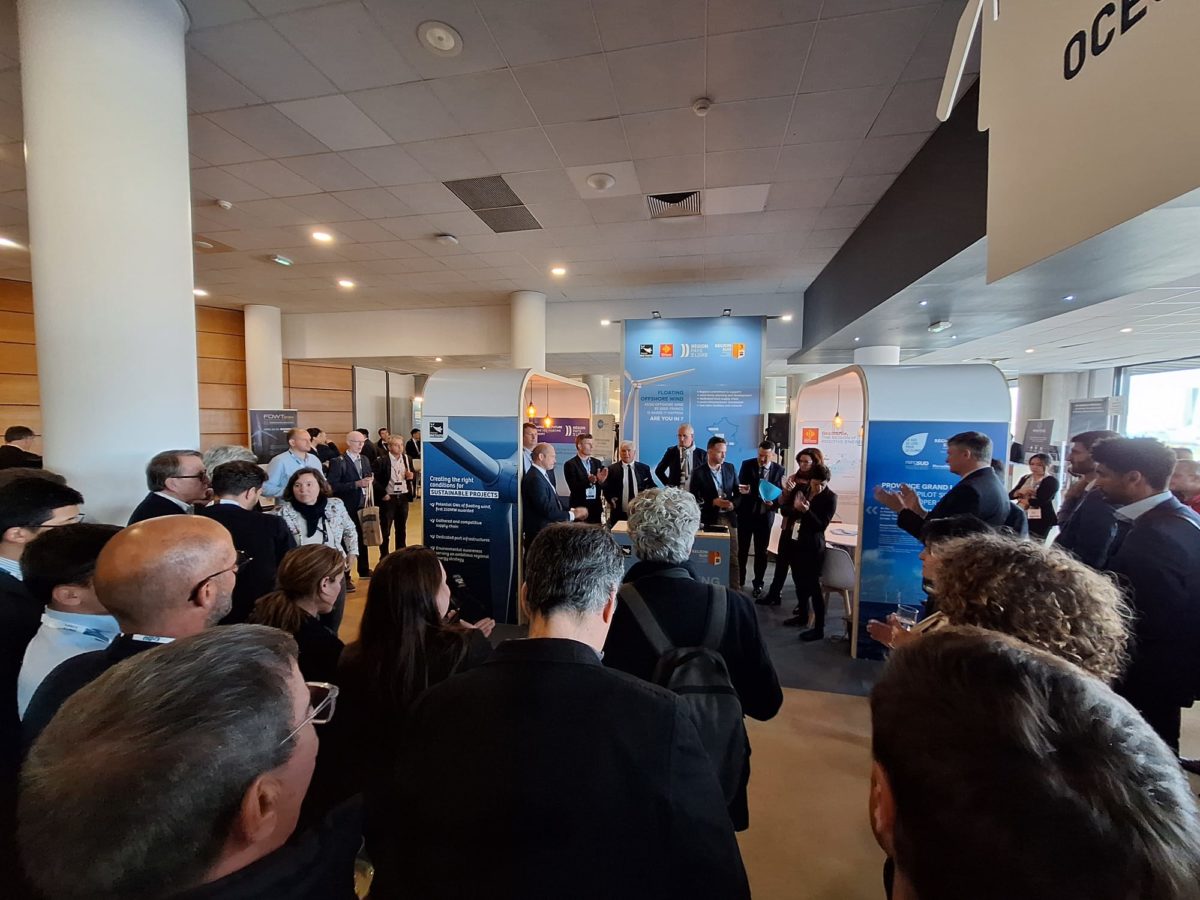
The 2024 edition of FOWT in Marseille was a key milestone for the development and consolidation of the floating wind energy sector, which stands out for its considerable potential in the global energy transition. With the participation of over 50 exhibitors, the event provided a platform for discussion and presentation of the latest advances in this rapidly expanding field.
Indeed, the floating wind sector, which enables turbines to be installed in deep waters where fixed foundations are not viable, is growing rapidly. According to forecasts by the International Energy Agency, floating wind power could reach a capacity of 6 GW by 2030, subject to adequate political and financial support. FOWT addressed these prospects, focusing on innovations, technical and regulatory challenges, and potential solutions for overcoming obstacles on an industrial scale.
THE PAYS DE LA LOIRE REGION AT FOWT
The Pays de la Loire region made its presence felt in a significant way, illustrating its commitment to this technology. Claire Hugues, Vice-President of the Region, emphasized the importance of floating wind turbines in the region’s energy strategy. Local companies such as SCM Le Mans and NaRval Solutions presented their latest innovations, demonstrating the dynamism of the regional ecosystem in this sector.
fowt, QUALITY EXCHANGES
Renowned speakers such as Gro de Saint-Martin, Director of Strategy and Development at RTE, Grzegor Gorski, CEO of Ocean Winds, and Javier Garcia Perez, Director of International Affairs at Iberdrola, shared their views on market developments, technical challenges such as supply chain integration, cyber security in response to sovereignty concerns, and the need for effective state planning.
Several technical sessions focused on key aspects such as substation cables and electrical connections, and anchoring systems. Ziad Maksassi from Nantes University made a notable contribution with his work on the bio-colonization of dynamic cables and the development of monitoring technologies to prevent their failure. Such research is essential to ensure the sustainability and reliability of offshore installations.
Discussions on open-source models and presentations by Jean-François Filipot, Scientific Director at France Energies Marines, on modeling wave-wind turbine interactions highlighted the importance of collaboration and knowledge sharing in accelerating the sector’s development
WEAMEC AND THE international SCENE
WEAMEC has played a crucial role in strengthening international links, notably with Scottish partners thanks to the support of Scottish Development International. Exchanges highlighted regional know-how and invited players to collaborate at Seanergy, thus strengthening international collaborations.
Finally, the round table organized by SDI, in which WEAMEC took part, on mooring and anchoring systems highlighted the challenges of standardization and the opportunities for innovation to increase reliability and rationalize costs. The discussion also highlighted the specific features of floating wind turbines compared to the Oil & Gas industry, particularly in terms of the size of installations and the demands placed on them in the marine environment.
TO concluDe
FOWT 2024 stressed that, despite the challenges, an exclusive focus on cost reduction could jeopardize the long-term development of the sector. Sustained investment in R&D is crucial to improving the reliability of technologies and, consequently, to reducing operational and capital costs over the long term, thus contributing to a robust and sustainable floating wind energy sector, essential to meeting carbon neutrality targets.

